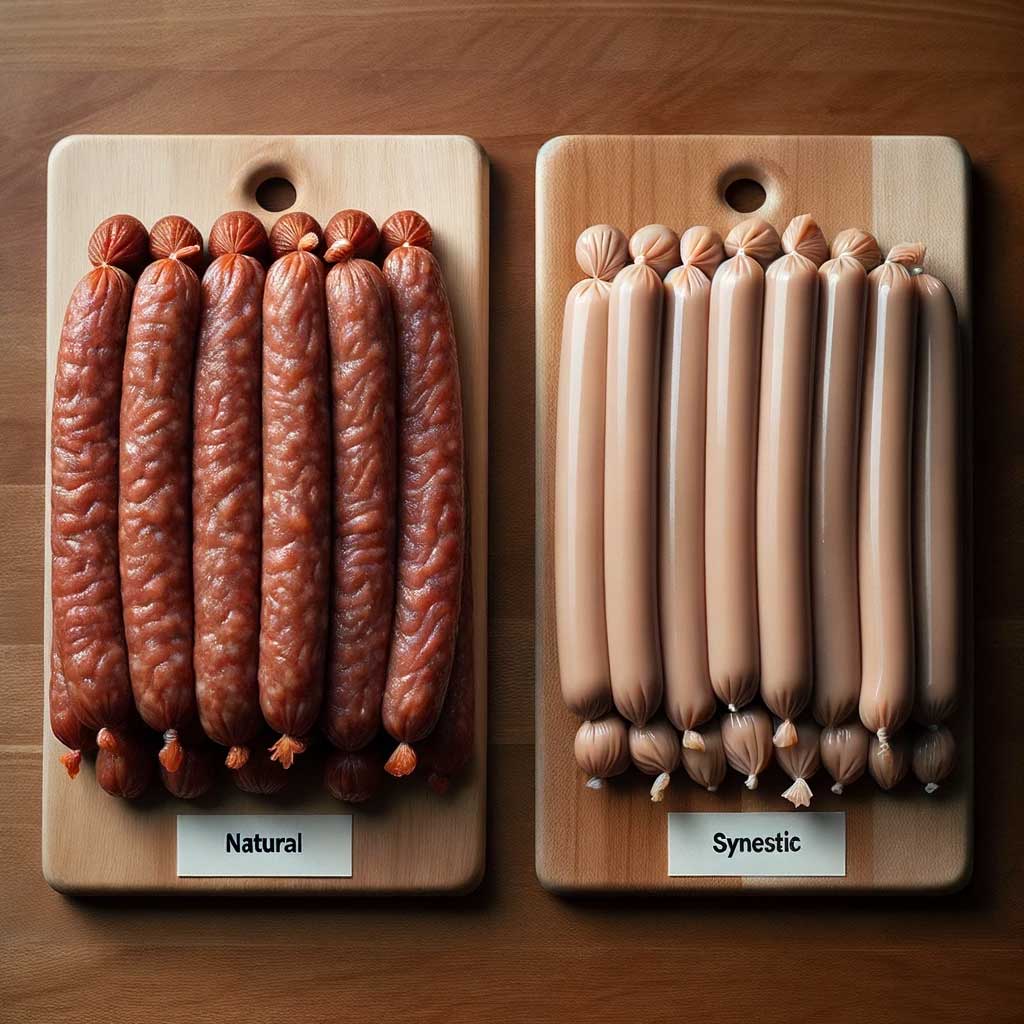Natural vs. Synthetic Casings: What's Best for Your Sausages?
Posted by Sausage Maker Supplies on 30th Sep 2023
Natural vs. Synthetic Casings: What's Best for Your Sausages?
The casing is an integral part of the sausage-making process, impacting the final taste, texture, and appearance. But with both natural and synthetic options available, which one should you choose? Let's dive into the differences, pros, and cons of each type.
Natural Casings:
Derived mainly from the intestines of hogs, sheep, and cattle, natural casings have been used in sausage-making for centuries.
Pros:
- Flavor and Texture: Natural casings enhance the sausage with a distinct, rich flavor and provide that traditional snap when bitten into.
- Permeability: They allow for better smoke penetration and moisture escape during cooking, leading to a flavorful and evenly cooked sausage.
- Appearance: The irregularities in natural casings give sausages a rustic, homemade look.
Cons:
- Consistency: Natural casings can vary in size and thickness, potentially leading to uneven cooking.
- Preparation: They often require soaking and rinsing before use.
- Shelf Life: Being natural, they have a shorter shelf life and might need refrigeration.
Synthetic Casings:
Made from materials like collagen, cellulose, or even plastic, synthetic casings were developed as an alternative to meet growing demand.
Pros:
- Uniformity: Synthetic casings are consistent in size and thickness, ensuring even cooking.
- Ease of Use: Many synthetic casings don't need pre-soaking, making the sausage-making process quicker.
- Shelf Life: They typically have a longer shelf life and are easier to store.
Cons:
- Texture and Flavor: While they've improved over the years, some sausage aficionados believe synthetics can't replicate the unique texture and flavor imparted by natural casings.
- Permeability: Plastic-based casings don't allow for smoke penetration or moisture escape, making them unsuitable for certain types of sausages.
Which is Best?
The choice between natural and synthetic casings often boils down to personal preference and the specific sausage type you're aiming to produce.
- If you're after a traditional taste, appearance, and that authentic snap, natural casings are the way to go. They're especially popular for homemade sausages and artisanal products.
- For commercial production, where consistency and ease of use are paramount, synthetic casings often take the lead. They're also suitable for certain types of sausages where specific flavors or textures are desired.
Check out all our casing options here on the website.
Both natural and synthetic casings have their unique advantages and challenges. As a sausage maker, understanding these differences will help you make an informed decision based on your goals, be it recreating a family recipe or venturing into commercial production.

